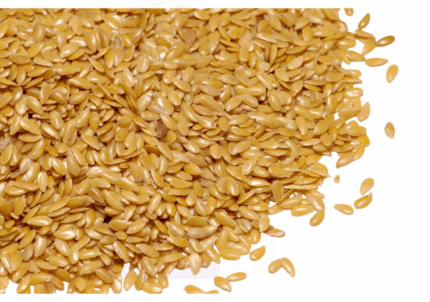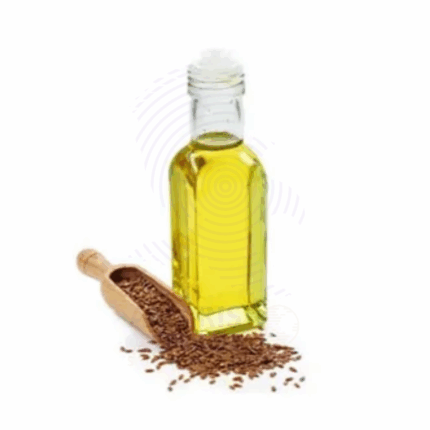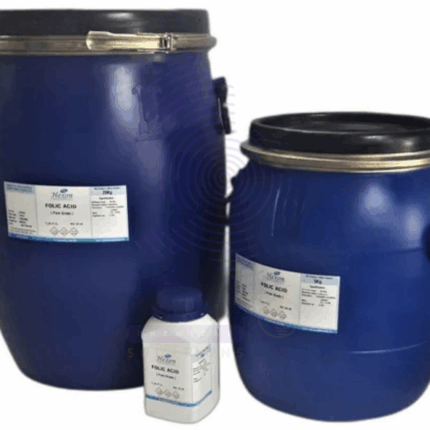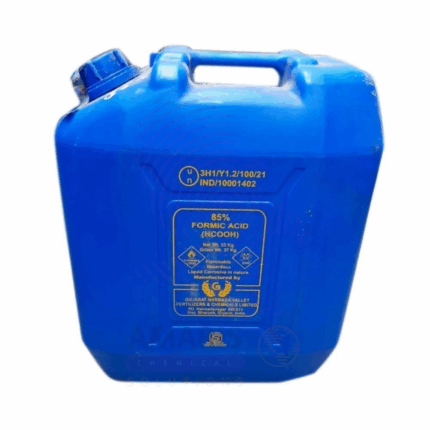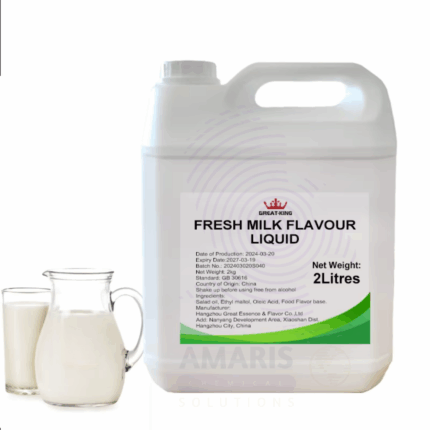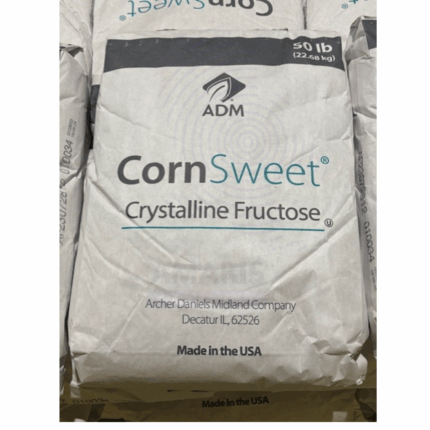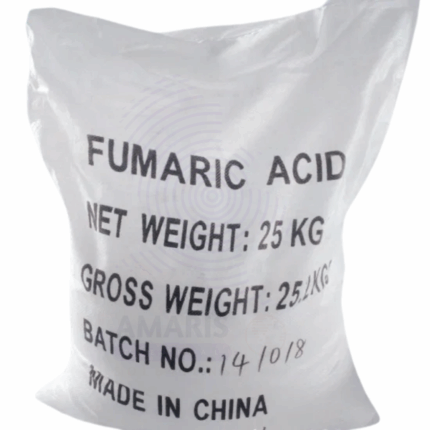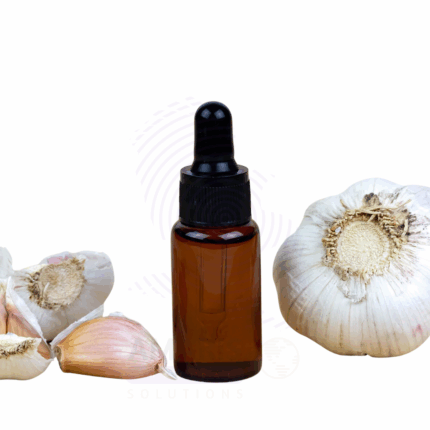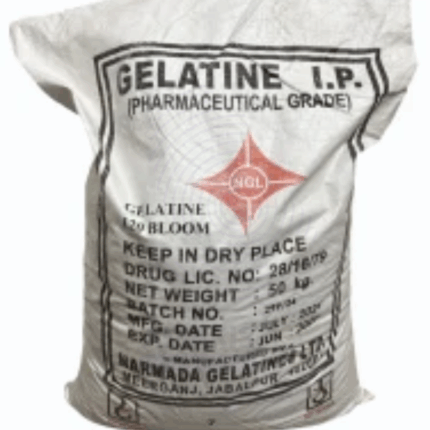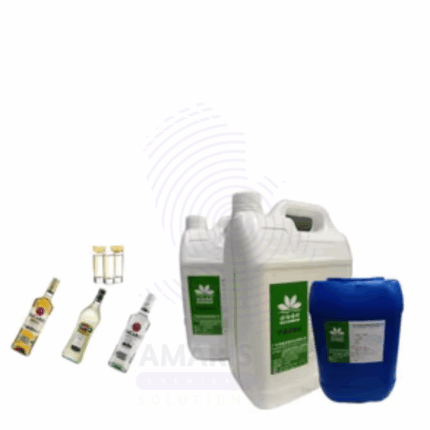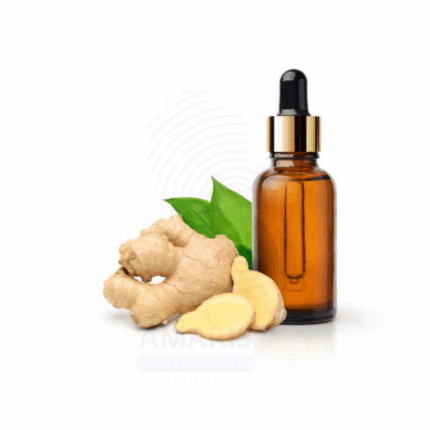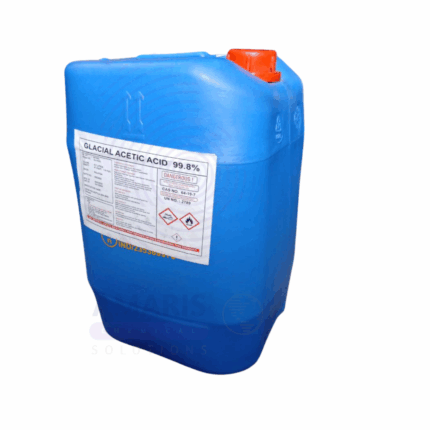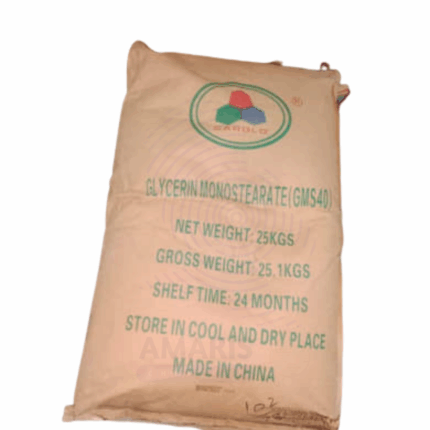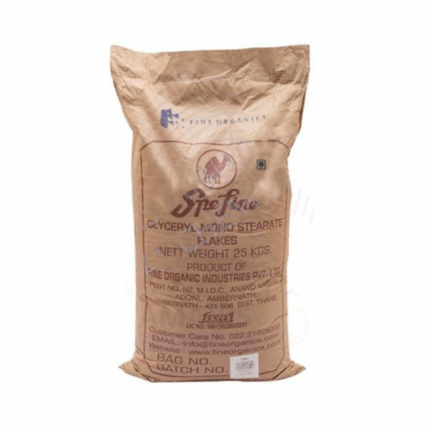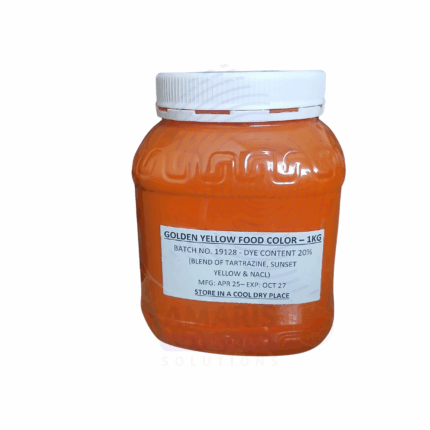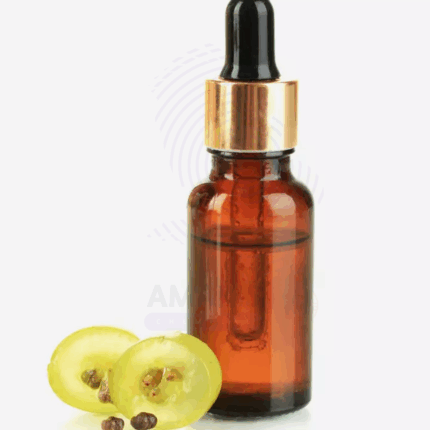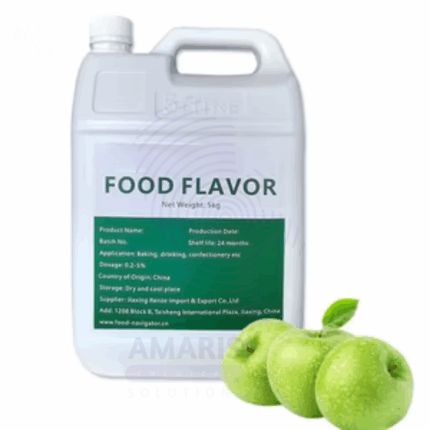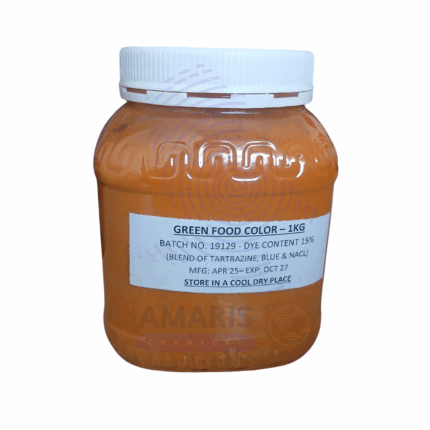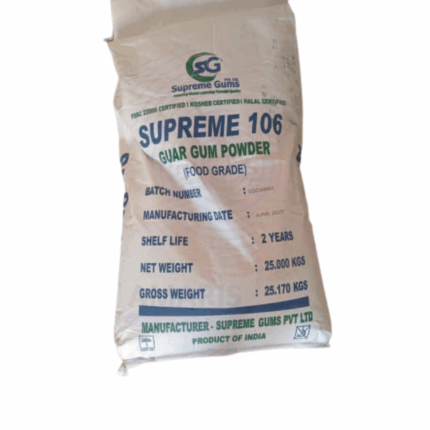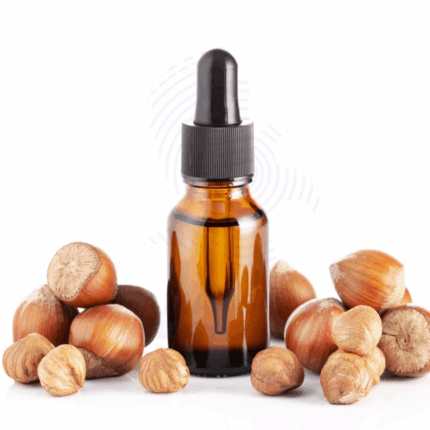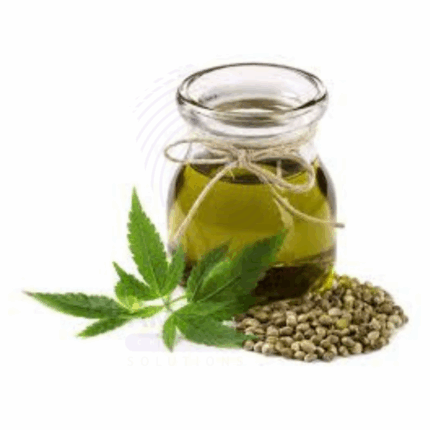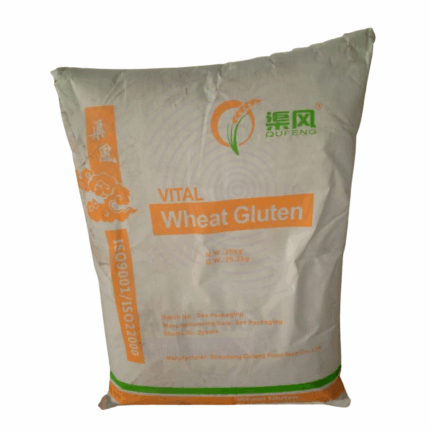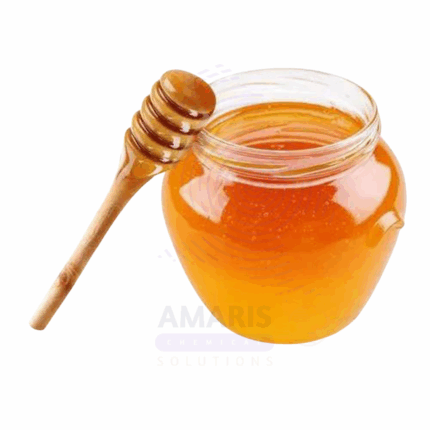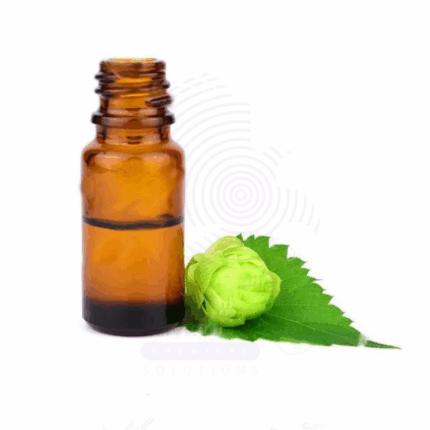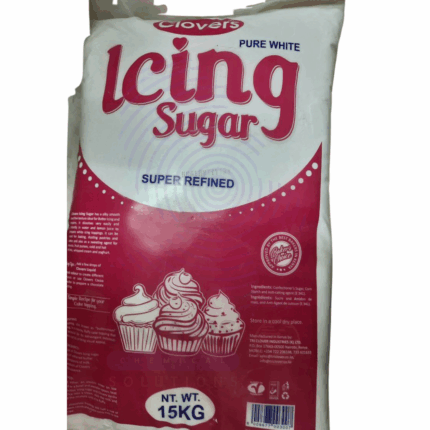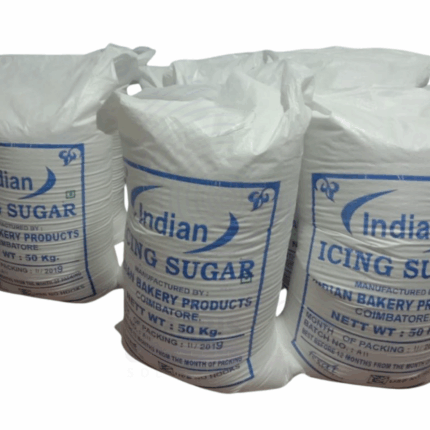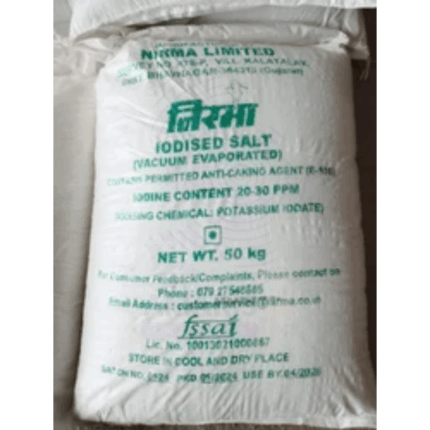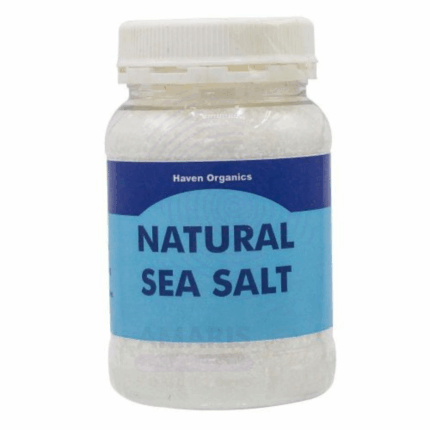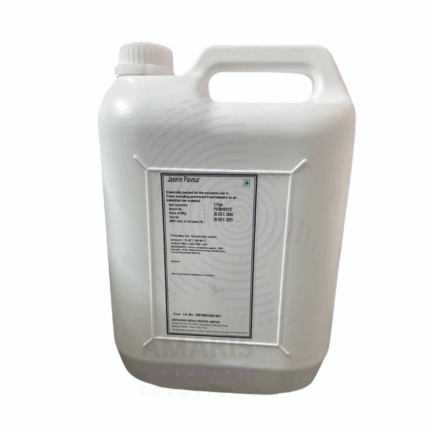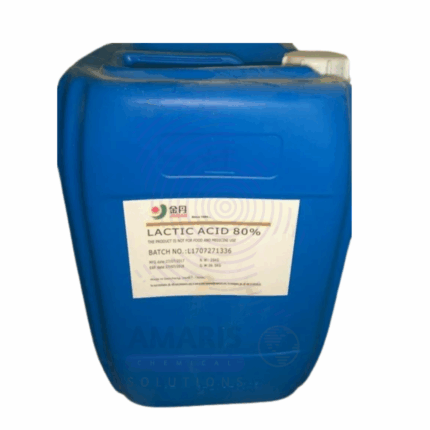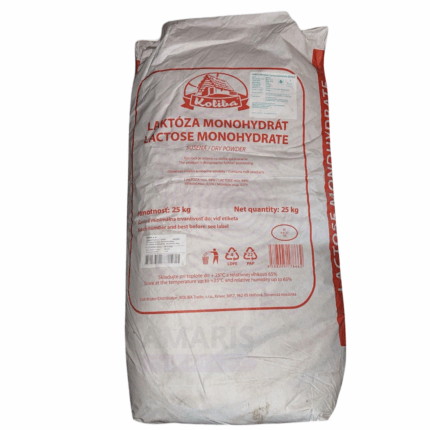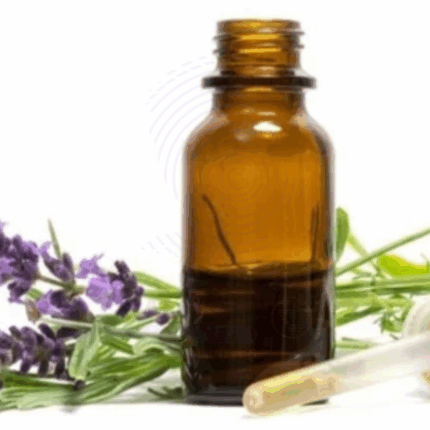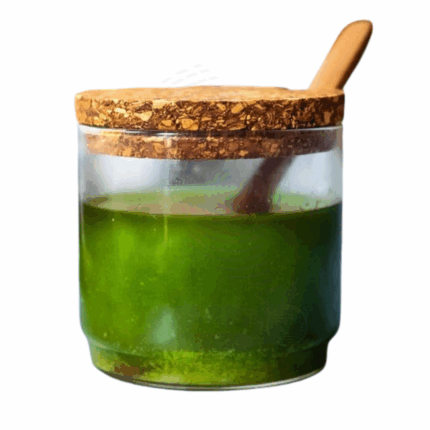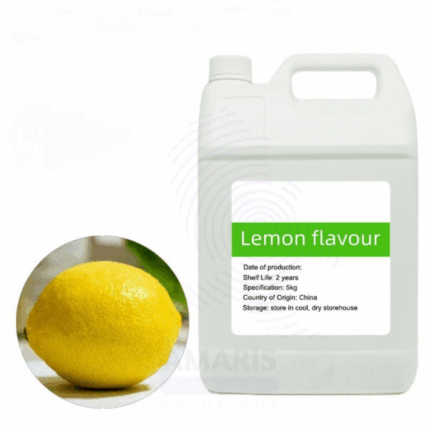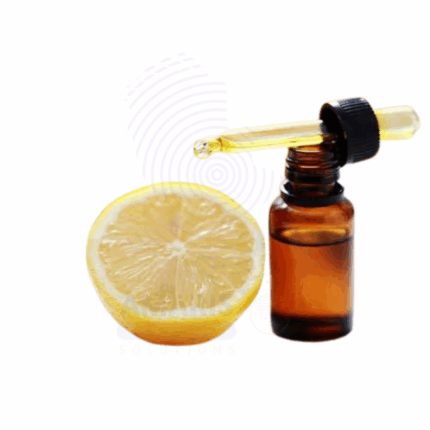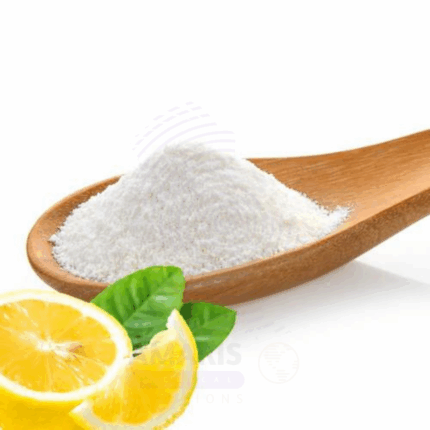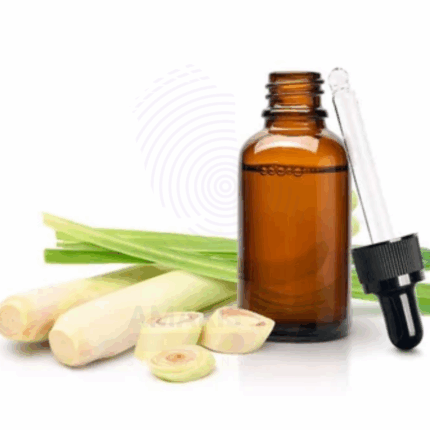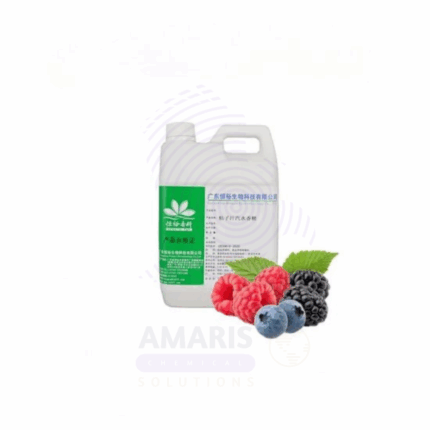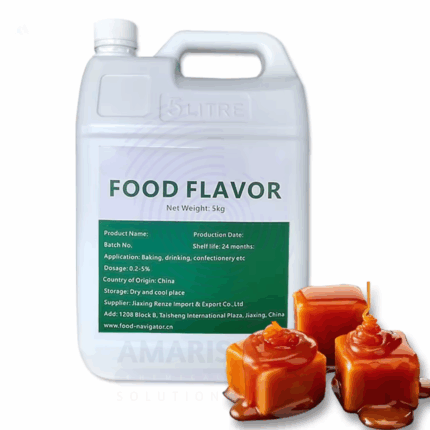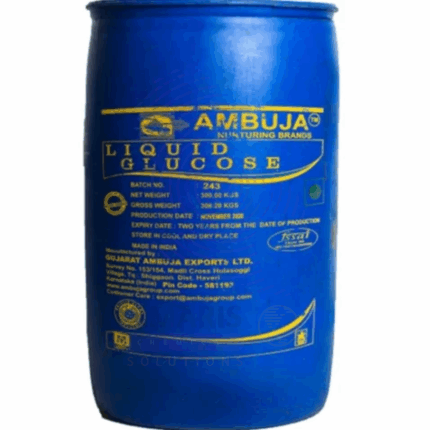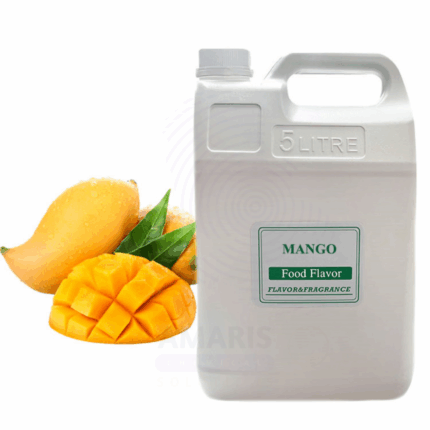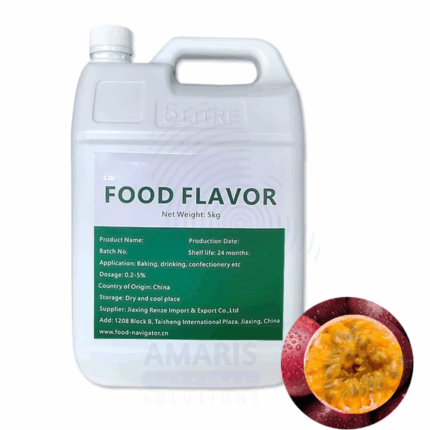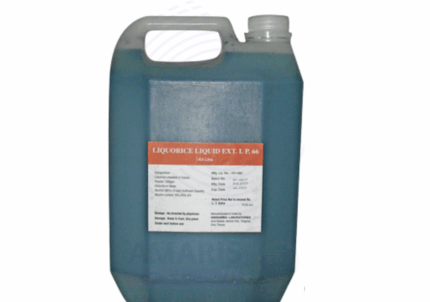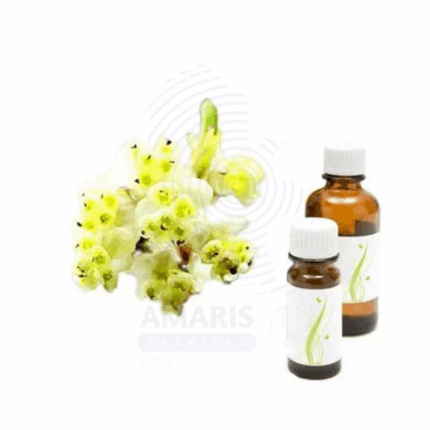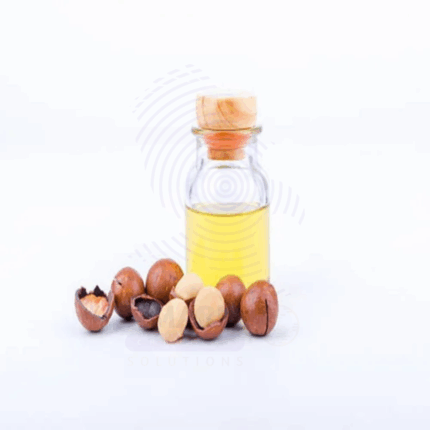
Flax
Flax (Linum usitatissimum) is an ancient crop cultivated primarily for its seeds and fibers. The flax seeds are small, flat, and oval, ranging from golden yellow to brown in color, and are rich in nutrients including omega-3 fatty acids (alpha-linolenic acid), lignans, dietary fiber, proteins, and vitamins. Flax fibers are derived from the stem and used in textile and industrial applications. Flaxseed oil, extracted from the seeds, is highly valued for its nutritional and therapeutic properties. Flax is utilized across food, nutraceutical, cosmetic, pharmaceutical, and industrial sectors due to its multifunctional health benefits, fiber content, and sustainable nature.
Folic Acid
Folic Acid, also known as Vitamin B9 or pteroylmonoglutamic acid, is a water-soluble vitamin essential for numerous physiological processes including DNA synthesis, repair, and methylation, as well as amino acid metabolism. It appears as a yellow to orange-yellow crystalline powder, odorless or with a faint characteristic odor. Folic Acid is vital for cell division and growth, making it critical during pregnancy and periods of rapid growth. It is widely used in the pharmaceutical, nutraceutical, food fortification, and cosmetic industries due to its role in preventing folate deficiency anemia, neural tube defects in newborns, and supporting overall cellular health.
Formic Acid
Formic Acid (methanoic acid) is the simplest carboxylic acid, typically supplied as an 85% aqueous solution. It is a colorless liquid with a pungent, penetrating odor and strong acidic properties. Formic Acid naturally occurs in insect stings and plant secretions and is widely used in chemical synthesis, agriculture, textile, leather, and rubber industries. The 85% solution balances potency and safe handling for industrial applications. It serves as a preservative, antibacterial agent, and intermediate chemical in numerous manufacturing processes.
Fresh Milk Liquid Flavour
Fresh Milk Liquid Flavour is a premium food-grade flavoring agent designed to replicate the authentic creamy and slightly sweet aroma of fresh milk. It enhances the taste and sensory appeal of a wide variety of food and beverage products by adding a smooth, natural dairy note. This liquid flavor is formulated for easy blending and consistent performance in diverse applications such as dairy products, bakery items, beverages, and confectionery. Its stable composition ensures long-lasting flavor quality throughout the product shelf life.
Fructose
Fructose, also known as fruit sugar, is a naturally occurring monosaccharide found in many plants, fruits, honey, and root vegetables. It is a simple sugar with a sweet taste and is one of the three dietary monosaccharides, alongside glucose and galactose. Fructose appears as a white crystalline powder, highly soluble in water, and is commonly used as a sweetener in food and beverage industries due to its high relative sweetness. It plays important roles in metabolism and is used extensively in the production of high-fructose corn syrup (HFCS) and other sweetening agents.
Fumaric Acid
Fumaric Acid is a naturally occurring dicarboxylic acid characterized by its white crystalline powder form and a slightly acidic taste. It is an unsaturated organic acid with the chemical formula C4H4O4 and is an intermediate in the Krebs cycle in biological systems. Fumaric Acid is commonly found in various plants and fungi and is commercially produced by isomerization of maleic acid or by fermentation. It is widely used in the food, pharmaceutical, chemical, and polymer industries due to its acidulant, antioxidant, and crosslinking properties.
Garlic Oil
Garlic Oil is a potent essential oil extracted from the bulbs of the Allium sativum plant, primarily through steam distillation or solvent extraction. Known for its strong, pungent aroma and rich sulfur-containing compounds such as allicin, diallyl disulfide, and ajoene, Garlic Oil is widely recognized for its antimicrobial, antifungal, antiviral, and antioxidant properties. Traditionally used in herbal medicine, it has applications in pharmaceuticals, natural personal care products, food flavoring, and agricultural pest management. Its therapeutic properties also make it a valuable ingredient in formulations aimed at cardiovascular health and immune system support.
Gelatin Powder 180 Bloom
Gelatin Powder 180 Bloom is a high-quality, partially hydrolyzed collagen protein derived primarily from the skin, bones, and connective tissues of animals such as pigs and cows. The “180 Bloom” rating indicates its gel strength, meaning it forms a firm gel, making it suitable for various industrial, food, pharmaceutical, and cosmetic applications. Gelatin is a natural biopolymer, pale yellow to off-white in color, odorless, and tasteless. It is widely used due to its excellent gelling, film-forming, emulsifying, and stabilizing properties. The powder form offers ease of handling, storage, and precise dosing.
Gin Liquid Flavour
Gin Liquid Flavour is a high-quality, food-safe flavoring designed to replicate the characteristic herbal, botanical, and juniper-forward profile of traditional gin. Crafted for use in food and beverage applications, this liquid flavor captures the complex notes of gin without containing alcohol, making it ideal for non-alcoholic beverages, gourmet culinary creations, and confectionery. The flavor is stable under a range of processing conditions and is suitable for cold and hot applications, offering excellent dispersion and flavor retention.
Ginger Liquid Flavour
Ginger Liquid Flavour is a high-quality, concentrated flavoring agent that delivers the warm, spicy, and slightly sweet taste of fresh ginger. Crafted using nature-identical or natural components, this liquid flavor is ideal for a wide range of food and beverage applications requiring the distinctive kick of ginger without the need for fresh root. It provides excellent solubility and flavor stability in both hot and cold formulations. Ginger Liquid Flavor is heat-resistant, making it suitable for baked goods, beverages, sauces, and confections where a natural and robust ginger profile is desired.
Ginger Oil
Ginger Oil is an essential oil extracted from the rhizomes of the Zingiber officinale plant, primarily through steam distillation. Known for its warm, spicy, and invigorating aroma, Ginger Oil contains bioactive compounds such as gingerol, zingiberene, and beta-bisabolene, which contribute to its therapeutic properties. Traditionally valued in Ayurveda and traditional medicine for digestive, anti-inflammatory, and analgesic benefits, Ginger Oil is widely used today in pharmaceuticals, cosmetics, flavoring, and aromatherapy. Its stimulating nature makes it effective for promoting circulation, relieving muscle pain, and enhancing mood.
Glacial Acetic Acid Food Grade
Glacial Acetic Acid Food Grade is a clear, colorless liquid organic compound with a pungent vinegar-like odor. It is a high-purity form of acetic acid specifically produced and processed for safe use in food applications. As the main component of vinegar (after dilution), it serves as a critical flavoring agent, pH adjuster, and preservative in the food industry. Food-grade acetic acid typically has a concentration of 80-100% (glacial acetic acid) or is diluted to lower concentrations (4-20%) for specific applications.
Glycerin
Glycerin, also known as glycerol, is a colorless, odorless, viscous liquid with a sweet taste and hygroscopic properties. It is a trihydroxy alcohol (triol) used extensively across food, pharmaceutical, cosmetic, and industrial applications. Food-grade glycerin is produced through hydrolysis, saponification, or transesterification of fats and oils, ensuring compliance with stringent purity standards. It is supplied in bulk (e.g., 250kg drums) for large-scale applications where non-toxic, biodegradable humectants or solvents are required. Glycerin is widely appreciated for its moisture-retaining ability, solubility, lubricity, and stabilizing properties.
Glycerol Monostearate
Glycerol Monostearate is a white to off-white, free-flowing powder composed of 50% monoglycerides of stearic and palmitic acids, typically derived from vegetable oils. It is a non-ionic emulsifier widely used in food, cosmetics, pharmaceuticals, plastics, and industrial applications. GMS functions as an emulsifying agent, stabilizer, thickener, anti-staling agent, and opacifier. In food, it improves texture and extends shelf life. In cosmetics and pharmaceuticals, it enhances creaminess and stability. GMS 50% is often blended with other emulsifiers or surfactants and is valued for its versatile functionality, safety, and compatibility with a wide range of ingredients.
Glycerol Monostearate Flakes
Glycerol Monostearate Flakes is a white to off-white waxy flake form emulsifier composed of 40% monoglycerides of fatty acids, primarily stearic and palmitic acids, combined with other glycerides and esters. Derived mainly from vegetable oils, this food-grade emulsifier is widely utilized in food, cosmetic, pharmaceutical, and industrial sectors for its multifunctional properties. GMS 40% flakes serve as effective emulsifiers, stabilizers, anti-caking agents, and texture enhancers, with excellent compatibility and versatility in formulations requiring semi-solid or solid fats.
Golden Yellow Color Water Soluble
Golden Yellow Color Water Soluble is a synthetic dye known for its vibrant golden yellow hue and excellent solubility in water. It is widely used across textile, cosmetic, food and beverage, and cleaning industries to impart a bright and consistent yellow coloration. The dye offers good stability, ease of application, and compatibility with various substrates, making it ideal for aqueous dyeing and formulation processes.
Grape Seed Oil
Grape Seed Oil is a light, pale-yellow oil extracted from the seeds of grapes (Vitis vinifera), typically obtained through cold pressing or solvent extraction. Renowned for its high content of polyunsaturated fatty acids, especially linoleic acid, as well as antioxidants like vitamin E and phenolic compounds, Grape Seed Oil is prized for its nourishing, moisturizing, and anti-inflammatory properties. Widely used in cosmetics, skincare, pharmaceutical formulations, and culinary applications, it is valued for its non-greasy texture and rapid absorption. Grape Seed Oil supports skin elasticity, helps repair damaged skin, and provides a protective barrier against environmental stressors.
Green Apple Liquid Flavour
Green Apple Liquid Flavour is a high-quality, food-grade flavoring agent that captures the crisp, sweet, and tangy aroma of fresh green apples. This liquid flavor is designed for easy incorporation into a wide range of food and beverage products, delivering a natural and refreshing apple taste. It is prized for its stability, strong flavor profile, and versatility, making it suitable for beverages, confectionery, baked goods, and dairy applications. Green Apple Liquid Flavor meets strict food safety standards and enhances the sensory appeal of products.
Green Color Water Soluble
Green Color Water Soluble is a synthetic dye characterized by its vibrant green hue and excellent solubility in water. This dye is widely used in various industries including textiles, cosmetics, food and beverage, and cleaning products for imparting a bright, consistent green coloration. It offers good stability, easy application, and compatibility with multiple substrates. Its water solubility makes it ideal for aqueous dyeing processes and formulations.
Guar Gum
Guar Gum is a natural polysaccharide extracted from the endosperm of the guar bean (Cyamopsis tetragonoloba). It appears as an off-white to cream-colored powder with a neutral odor and bland taste. Guar Gum is a galactomannan composed mainly of mannose and galactose units, known for its excellent water-binding, thickening, and stabilizing properties. It forms highly viscous solutions even at low concentrations, making it a versatile hydrocolloid used widely across food, pharmaceutical, cosmetic, oilfield, and industrial applications.
Hazelnut Oil
Hazelnut Oil is a light, nutty-scented carrier oil extracted from the nuts of the hazelnut tree (Corylus avellana) through cold pressing. Rich in oleic acid, vitamin E, and antioxidants, it is prized for its moisturizing, nourishing, and skin-repairing properties. Known for its fast absorption and non-greasy feel, Hazelnut Oil is widely used in skincare, hair care, and cosmetic formulations. It helps balance oily skin, tighten pores, and improve skin elasticity. Additionally, it finds applications in food flavoring and pharmaceutical products as a natural emollient and carrier oil.
Hemp Seed Oil
Hemp Seed Oil is a cold-pressed oil extracted from the seeds of the Cannabis sativa plant. Unlike CBD or THC oils, hemp seed oil contains no cannabinoids and is valued for its rich content of essential fatty acids, including omega-3 and omega-6, as well as antioxidants and vitamins A, C, and E. It has a light to dark green color and a mild, nutty aroma.
Due to its highly moisturizing, anti-inflammatory, and skin-rejuvenating properties, it is widely used in skincare, haircare, pharmaceuticals, and nutritional supplements. It also finds applications in paints, lubricants, and industrial formulations thanks to its stability and bio-based origin.
High Gluten Wheat Flour
High Gluten Wheat Flour is a finely milled powder derived from hard wheat varieties known for their high protein content, typically ranging from 12% to 14.5%. This flour has a superior gluten-forming capacity which imparts strong dough elasticity and excellent gas retention properties. It appears as an off-white to pale yellow powder with a neutral to slightly nutty aroma. High Gluten Wheat Flour is prized in baking industries and food manufacturing for producing products with enhanced chewiness, volume, and texture. It is essential for applications requiring strong dough structure and resilience.
Honey Special Liquid Flavour
Honey Special Liquid Flavour is a premium food-grade flavoring agent designed to replicate the rich, sweet, and natural aroma and taste of pure honey. This liquid flavor is ideal for enhancing the sensory qualities of a variety of food and beverage products. It offers excellent stability and solubility, making it suitable for use in drinks, baked goods, confectionery, dairy products, and sauces. The flavoring is carefully formulated to provide an authentic honey experience without the viscosity of natural honey, allowing for easy blending and consistent flavor delivery. Manufactured under strict quality control, it complies with food safety regulations and supports clean-label product development.
Hop Oil
Hop Oil is a volatile essential oil extracted via steam distillation from the cone-shaped flowers (strobiles) of the hop plant (Humulus lupulus). It has a complex, herbaceous, slightly bitter aroma with earthy, floral, and spicy undertones. Known for its calming, sedative, and antimicrobial effects, Hop Oil is widely used in aromatherapy, cosmetics, herbal formulations, and specialty beverages.
Traditionally linked with beer production, Hop Oil also finds application in natural perfumery, body care, and wellness products aimed at promoting relaxation. Its bioactive compounds such as humulene, myrcene, and caryophyllene contribute to its diverse functional and aromatic value.
Icing Sugar
Icing Sugar, also known as powdered sugar or confectioners’ sugar, is a finely ground sugar with a powdery consistency. It is typically made by milling granulated sugar into a fine powder and blending it with a small amount of anti-caking agent (usually cornstarch or tricalcium phosphate) to prevent clumping. Icing Sugar is white, odorless, and has a sweet taste. It is widely used in baking, confectionery, and culinary applications to provide sweetness, texture, and decorative finishes.
Iodised Salt
Iodised Salt is table salt (sodium chloride) fortified with a small, controlled amount of iodine, typically in the form of potassium iodate or potassium iodide. It appears as fine white crystalline granules, odorless, and with a characteristic salty taste. The addition of iodine helps prevent iodine deficiency disorders (IDD) such as goiter, mental impairment, and developmental abnormalities. Iodised Salt is widely used in households, food processing, and animal nutrition to ensure adequate dietary iodine intake.
Iodised Salt Extra Pure
Iodised Salt Extra Pure is a refined form of sodium chloride enriched with a precise amount of iodine, typically in the form of potassium iodate or iodide. It is primarily used to prevent iodine deficiency disorders, making it essential in nutritional and public health applications. Beyond its dietary use, iodised salt also serves in laboratory settings for controlled experiments involving iodine content and salt solubility studies. Its high purity ensures minimal contamination, making it suitable for analytical and pharmaceutical applications where quality and consistency are critical. Proper storage in airtight containers is recommended to prevent iodine loss due to air exposure.
Jasmine Liquid Flavor
Jasmine Liquid Flavor is a high-quality, natural and synthetic blend formulated to impart the delicate, sweet floral aroma and taste of jasmine to a wide variety of food and beverage products. It is designed for easy blending and consistent flavor delivery in aqueous and fat-based systems, making it suitable for use in confectionery, baked goods, beverages, dairy products, and culinary preparations. This flavor complies with food safety regulations and is produced under stringent food-grade standards to ensure purity, safety, and reliability.
Lactic Acid
Lactic Acid is a colorless to pale yellow, viscous liquid with a mild acidic odor. It is an organic acid naturally produced by fermentation and widely used in industrial, pharmaceutical, cosmetic, and food applications. The 80% concentration provides a balance of potency and ease of handling, making it suitable for pH adjustment, preservation, and chemical synthesis. Lactic acid is biodegradable, non-toxic, and valued for its multifunctionality including antimicrobial properties and chelation abilities.
Lactose Monohydrate 200 Mesh
Lactose Monohydrate 200 Mesh is a fine, white, crystalline powder derived from milk sugar with a particle size of 200 mesh, indicating very fine granules. It is widely used in pharmaceutical, food, and confectionery industries as a filler, binder, and stabilizer. Lactose Monohydrate is valued for its excellent compressibility, low hygroscopicity, and compatibility with many active pharmaceutical ingredients (APIs). The monohydrate form contains one molecule of water, enhancing its stability and flow properties.
Lavender oil
Lavender oil is a popular essential oil steam-distilled from the fresh flowering tops of the Lavandula angustifolia plant. It has a characteristic floral, herbaceous, and slightly woody aroma with calming and therapeutic properties. Known for its versatility, lavender oil is widely used in aromatherapy, cosmetics, and personal care products for its soothing, anti-inflammatory, and antiseptic qualities. It also serves as a natural fragrance and flavoring agent in various applications.
Leek Oil
Leek Oil is an essential oil obtained by steam distillation from the bulbs or leaves of the Allium ampeloprasum var. porrum (leek) plant. It has a strong, sulfurous, and pungent aroma characteristic of the Allium family. Leek Oil is known for its antimicrobial, antioxidant, and anti-inflammatory properties. It is used primarily in natural medicine, cosmetic formulations targeting scalp and skin health, and in aromatherapy for respiratory benefits.
Lemon Liquid Flavor
Lemon Liquid Flavor is a high-quality, citrus-based flavoring solution designed to impart the tangy, zesty taste of fresh lemons to a variety of food and beverage products. Known for its bright, refreshing profile, it is widely used in both sweet and savory formulations. The liquid form allows for easy mixing and dispersion in syrups, confections, baked goods, and dairy products. Its stability under typical processing conditions and compatibility with other flavor notes make it a versatile and essential ingredient in the food industry.
Lemon Oil
Lemon Oil is a vibrant essential oil obtained by cold-pressing the rinds of Citrus limon fruit. It is known for its fresh, uplifting, citrus aroma and is rich in limonene. Lemon oil is widely used for its cleansing, refreshing, and mood-enhancing properties. It finds application in perfumery, aromatherapy, personal care, cleaning products, and food flavoring.
Lemon Powder Flavour
Lemon Powder Flavour is a premium-quality, spray-dried flavoring designed to capture the bright, tangy essence of fresh lemons in a convenient, easy-to-handle powdered form. This flavor powder is ideal for dry mix applications and offers excellent stability, long shelf life, and consistent performance across a variety of food and beverage products. It blends effortlessly into both dry and rehydrated systems, making it suitable for products such as instant beverages, seasoning blends, bakery mixes, and confectionery. Its robust citrus profile and versatility make it a staple for manufacturers seeking a natural, refreshing lemon note in their dry formulations.
Lemongrass Oil
Lemongrass Oil is a pale yellow to amber essential oil extracted primarily through steam distillation from the leaves and stalks of the Cymbopogon citratus or Cymbopogon flexuosus plants. Renowned for its fresh, citrusy, lemon-like aroma with subtle grassy undertones, this oil contains high levels of citral and limonene, compounds known for their antimicrobial, anti-inflammatory, and insect-repellent properties. Widely utilized in aromatherapy, personal care, pharmaceuticals, and natural cleaning products, lemongrass oil offers both fragrance and functional benefits. It is valued for its ability to invigorate the senses, reduce stress, and support skin health.
Liquid Berries Flavour
Liquid Berries Flavour is a high-quality, concentrated flavoring designed to capture the vibrant and sweet aroma of mixed berries. This versatile liquid flavor is ideal for use in beverages, confectionery, dairy products, and various food applications requiring a natural and authentic berry taste. It offers excellent solubility, stability, and a long shelf life, ensuring consistent flavor delivery in both cold and hot processed products. Its rich berry profile enhances the sensory appeal of products, making it a preferred choice for manufacturers aiming to provide fruity freshness.
Liquid Caramel Flavor
Liquid Caramel Flavor is a rich, sweet, and versatile flavoring designed to impart the classic warm, buttery notes of caramel. It is widely used in the food and beverage industry to enhance the taste profile of a variety of products, including confectionery, bakery items, beverages, dairy, and desserts. This liquid flavor offers excellent solubility and stability in both cold and hot processing environments, ensuring consistent and long-lasting caramel taste. Its natural and authentic flavor profile helps create indulgent, high-quality products that appeal to consumers seeking familiar and comforting sweetness.
Liquid Glucose
Liquid Glucose is a viscous, clear to pale amber syrup primarily composed of glucose and other saccharides. It is produced by the enzymatic hydrolysis of starch derived from corn, wheat, or potatoes. Known for its high sweetness and excellent moisture-retention properties, Liquid Glucose is widely used in the food and beverage industry to enhance texture, sweetness, and shelf life. It also acts as a humectant and crystallization inhibitor, improving the quality and consistency of various processed foods.
Liquid Mango Flavour
Liquid Mango Flavour is a vibrant, tropical flavoring designed to capture the sweet, juicy essence of ripe mangoes. This flavor is widely utilized in the food and beverage industry to enhance the sensory profile of products such as beverages, confectionery, dairy, and baked goods. It offers excellent solubility in both aqueous and alcoholic solutions, making it versatile for a range of applications. The authentic and fresh mango aroma helps manufacturers deliver high-quality products that satisfy consumer demand for exotic and fruity tastes.
Liquid Passion Fruit Flavour
Liquid Passion Fruit Flavour is a vibrant and tangy flavoring designed to replicate the exotic and refreshing taste of ripe passion fruit. This high-quality flavor is extensively used in the food and beverage industry to enhance products such as juices, smoothies, confectionery, dairy, and baked goods. It dissolves well in both water and alcohol, offering versatility in various formulations. Its authentic tropical aroma and taste help manufacturers create appealing products that satisfy consumer preferences for fruity and refreshing flavors.
Liquid Pineapple Flavor food grade
Liquid Pineapple Flavor (Food Grade) is a high-quality, natural and synthetic flavoring agent designed to capture the sweet, tangy, and refreshing taste of ripe pineapple. Widely used in the food and beverage industry, this flavor enhances a variety of products such as soft drinks, juices, confectionery, dairy, and baked goods. It is water and alcohol soluble, providing versatility in formulation. Its vibrant tropical aroma and authentic pineapple taste help create appealing and flavorful consumer products.
Liquid strawberry flavor food grade
Liquid Strawberry Flavor (Food Grade) is a premium quality flavoring agent that captures the fresh, sweet, and slightly tart essence of ripe strawberries. Widely used in the food and beverage industry, this flavor enhances the taste and aroma of a variety of products including beverages, confectionery, dairy, and baked goods. It is water and alcohol soluble, allowing easy incorporation into multiple formulations. The natural and authentic strawberry profile makes it ideal for creating flavorful and appealing consumer products.
Liquid Vanilla flavor food grade
Liquid Vanilla Flavor (Food Grade) is a high-quality, natural and synthetic blend designed to provide the rich, creamy, and sweet aroma characteristic of vanilla beans. Widely used in the food and beverage industry, this versatile flavoring enhances the taste profile of baked goods, dairy products, beverages, and confectionery. Its excellent solubility in water and alcohol allows for easy incorporation into a wide range of formulations. Liquid Vanilla Flavor offers a smooth, authentic vanilla note that improves product appeal and consumer satisfaction.
Liquorice
Liquorice is the dried root extract of the Glycyrrhiza glabra plant, known for its distinctive sweet flavor and medicinal properties. It contains glycyrrhizin, a compound that is 30–50 times sweeter than sugar. Liquorice is widely used as a flavoring agent in confectionery, beverages, and tobacco, as well as in traditional and modern medicine for its soothing, anti-inflammatory, and expectorant effects.
Litsea Cubeba Oil
Litsea Cubeba Oil is a volatile essential oil obtained by steam distillation of the fruit and leaves of the Litsea cubeba plant, native to Southeast Asia. It has a fresh, lemony, citrus aroma with spicy undertones. Known for its antimicrobial, antifungal, and insect-repellent properties, Litsea Cubeba Oil is widely used in perfumery, aromatherapy, personal care products, and natural cleaning formulations.
Lovage Herb Oil
Lovage Herb Oil is a potent essential oil derived from the leaves and aerial parts of the Levisticum officinale plant through steam distillation. It has a strong, herbaceous, celery-like aroma with warm, spicy undertones. Traditionally used in herbal medicine and culinary applications, this oil is valued for its digestive, anti-inflammatory, and antimicrobial properties.
In modern usage, Lovage Herb Oil is incorporated into personal care products, therapeutic blends, and natural perfumery. It is also used in aromatherapy for its invigorating and detoxifying effects. Due to its intense fragrance and bioactive compounds, it must be used in low concentrations and properly diluted in formulations.
Macadamia Nut Oil
Macadamia Nut Oil is a rich, golden, cold-pressed oil extracted from the nuts of the Macadamia integrifolia tree. Known for its high content of monounsaturated fatty acids—particularly oleic and palmitoleic acid—it closely resembles the natural oils found in human skin. It is lightweight, non-greasy, and easily absorbed, making it ideal for cosmetic, personal care, and culinary applications.
Highly emollient and nourishing, Macadamia Nut Oil is used in skincare, haircare, massage blends, and anti-aging formulations. Its oxidative stability also makes it suitable for use in food products, including cooking oils and dressings. It provides deep moisturization, improves skin elasticity, and protects against environmental stressors.


 Preservatives(food)
Preservatives(food) Flavor Enhancers
Flavor Enhancers Acidulants
Acidulants Sweeteners
Sweeteners Antioxidants
Antioxidants Colorants(food)
Colorants(food) Nutraceutical Ingredients (food)
Nutraceutical Ingredients (food) Nutrient Supplements
Nutrient Supplements Emulsifiers
Emulsifiers
 Collectors
Collectors Dust Suppressants
Dust Suppressants Explosives and Blasting Agents
Explosives and Blasting Agents Flocculants and Coagulants
Flocculants and Coagulants Frothers
Frothers Leaching Agents
Leaching Agents pH Modifiers
pH Modifiers Precious Metal Extraction Agents
Precious Metal Extraction Agents
 Antioxidants(plastic)
Antioxidants(plastic) Colorants (Pigments, Dyes)
Colorants (Pigments, Dyes) Fillers and Reinforcements
Fillers and Reinforcements Flame Retardants
Flame Retardants Monomers
Monomers Plasticizers
Plasticizers Polymerization Initiators
Polymerization Initiators Stabilizers (UV, Heat)
Stabilizers (UV, Heat)
 Antifoaming Agents
Antifoaming Agents Chelating Agents
Chelating Agents Coagulants and Flocculants
Coagulants and Flocculants Corrosion Inhibitors
Corrosion Inhibitors Disinfectants and Biocides
Disinfectants and Biocides Oxidizing Agents
Oxidizing Agents pH Adjusters
pH Adjusters Scale Inhibitors( water)
Scale Inhibitors( water)
 Antioxidants(cosmetic)
Antioxidants(cosmetic) Emollients
Emollients Fragrances and Essential Oils
Fragrances and Essential Oils Humectants
Humectants Preservatives
Preservatives Surfactants(cosmetic)
Surfactants(cosmetic) Thickeners
Thickeners UV Filters
UV Filters
 Fertilizers
Fertilizers Soil Conditioners
Soil Conditioners Plant Growth Regulators
Plant Growth Regulators Animal Feed Additives
Animal Feed Additives Biostimulants
Biostimulants Pesticides (Herbicides, Insecticides, Fungicides)
Pesticides (Herbicides, Insecticides, Fungicides)
 Active Pharmaceutical Ingredients (APIs)
Active Pharmaceutical Ingredients (APIs) Excipients
Excipients Solvents(pharmaceutical)
Solvents(pharmaceutical) Antibiotics
Antibiotics Antiseptics and Disinfectants
Antiseptics and Disinfectants Vaccine Adjuvants
Vaccine Adjuvants Nutraceutical Ingredients (pharmaceutical)
Nutraceutical Ingredients (pharmaceutical) Analgesics & Antipyretics
Analgesics & Antipyretics
 Analytical Reagents
Analytical Reagents Solvents(lab)
Solvents(lab) Chromatography Chemicals
Chromatography Chemicals Spectroscopy Reagents
Spectroscopy Reagents microbiology-and-cell-culture-reagents
microbiology-and-cell-culture-reagents Molecular Biology Reagents
Molecular Biology Reagents Biochemical Reagents
Biochemical Reagents Inorganic and Organic Standards
Inorganic and Organic Standards Laboratory Safety Chemicals
Laboratory Safety Chemicals Specialty Laboratory Chemicals(Special Laboratory Equipment)
Specialty Laboratory Chemicals(Special Laboratory Equipment)
 Demulsifiers
Demulsifiers Hydraulic Fracturing Fluids
Hydraulic Fracturing Fluids Scale Inhibitors(oil)
Scale Inhibitors(oil) Surfactants(oil)
Surfactants(oil) Drilling Fluids
Drilling Fluids
 Dyes and Pigments
Dyes and Pigments Bleaching Agents
Bleaching Agents Softening Agents
Softening Agents Finishing Agents
Finishing Agents Antistatic Agents
Antistatic Agents
 Admixtures
Admixtures Waterproofing Agents
Waterproofing Agents Sealants and Adhesives
Sealants and Adhesives Curing Compounds
Curing Compounds Concrete Repair Chemicals
Concrete Repair Chemicals Anti-Corrosion Coatings
Anti-Corrosion Coatings
 Surfactants(cleaning)
Surfactants(cleaning) Builders
Builders Enzymes
Enzymes Solvents (Cleaning)
Solvents (Cleaning) Fragrances
Fragrances
 Electronic Chemicals
Electronic Chemicals Catalysts
Catalysts Lubricants
Lubricants Photographic Chemicals
Photographic Chemicals Refrigerants
Refrigerants Automotive chemicals
Automotive chemicals Pyrotechnic Chemicals
Pyrotechnic Chemicals
 Biodegradable Surfactants
Biodegradable Surfactants Bio-based Solvents
Bio-based Solvents Renewable Polymers
Renewable Polymers Carbon Capture Chemicals
Carbon Capture Chemicals Wastewater Treatment Chemicals
Wastewater Treatment Chemicals
 Pigments
Pigments Solvents(paint)
Solvents(paint) Specialty Coatings
Specialty Coatings Binders/Resins
Binders/Resins Additives
Additives Driers
Driers Anti-Corrosion Agents
Anti-Corrosion Agents Functional Coatings
Functional Coatings Application-Specific Coatings
Application-Specific Coatings
 Fresh Herbs
Fresh Herbs Ground Spices
Ground Spices Whole Spices
Whole Spices Spice Blends
Spice Blends Dried Herbs
Dried Herbs
 Leavening Agents
Leavening Agents Dough Conditioners
Dough Conditioners Flour Treatments
Flour Treatments Fat Replacers
Fat Replacers Decoratives
Decoratives Preservatives(baking)
Preservatives(baking)
 Plasticizers & Softeners
Plasticizers & Softeners Reinforcing Agents
Reinforcing Agents Adhesion Promoters
Adhesion Promoters Vulcanizing Agents
Vulcanizing Agents Antidegradants
Antidegradants Blowing Agents
Blowing Agents Fillers & Extenders
Fillers & Extenders Accelerators & Retarders
Accelerators & Retarders

















